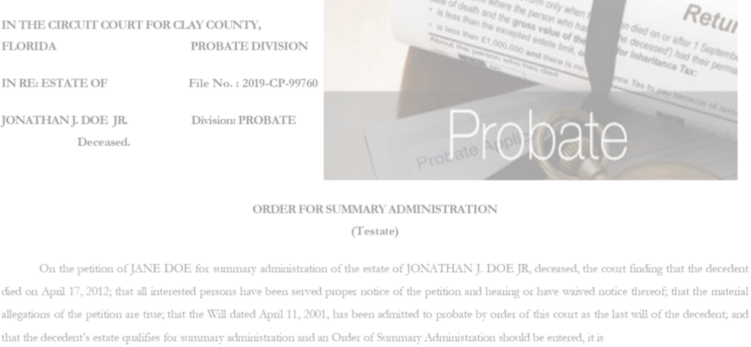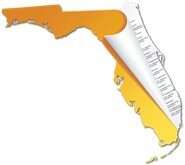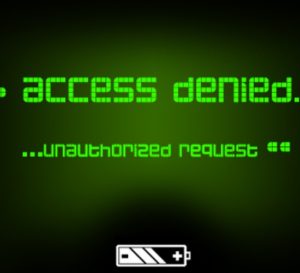
Administración Sumaria Simplificada de Florida - Servicios de Mecanografía de Documentos Sucesorios sin Abogado
Por qué está aquí: Navegar en un momento delicado
Perder a un ser querido nunca es fácil, y navegar por el papeleo que sigue puede sentirse abrumador. Si se enfrenta al proceso de Administración Sumaria de Florida, estamos aquí para ayudarle con documentos asequibles y sin abogados. escribiendo servicios. Aunque no somos abogados y no podemos ofrecerle asesoramiento jurídico ni determinar qué formularios necesita, podemos ayudarle de las siguientes maneras mecanografía de la información que facilite por escrito en formularios judiciales estándar, ayudándole a avanzar con claridad y confianza.
Comprender la administración sumarial en Florida
¿Qué es la administración sumaria?
La Administración Sumaria es un proceso supervisado por el tribunal que se utiliza en Florida para distribuir los activos de ciertos patrimonios que reúnen los requisitos. A menudo se considera una alternativa más ágil que la Administración Formal porque generalmente implica menos pasos y puede resolverse más rápidamente. Este proceso puede estar disponible cuando el valor del patrimonio está por debajo de un umbral específico o cuando el difunto ha fallecido hace más de dos años.

En Florida Document Specialists, ofrecemos a los no abogados servicios de mecanografía para ayudarle con la parte administrativa de la preparación de los documentos necesarios para la Administración Sumaria, basándonos únicamente en la información que nos facilite por escrito. No podemos determinar su elegibilidad, seleccionar formularios o proporcionar asesoramiento jurídico, pero podemos ayudar a garantizar que la documentación refleje su información de manera clara y profesional.
¿Quién puede acogerse a la Administración Sumaria en Florida?
De acuerdo con los estatutos de Florida, la Administración Sumaria puede ser una opción cuando el valor total de la herencia -excluyendo los bienes exentos como una vivienda- es de $75.000 o menos, o cuando el difunto ha fallecido hace más de dos años. Estas directrices las establece el estado y están sujetas a cambios.
Dado que no somos abogados, no podemos asesorarle sobre la elegibilidad. Sin embargo, si cree que su situación puede reunir los requisitos y ya ha determinado que la Administración Sumaria es adecuada para sus necesidades, nuestro equipo puede ayudarle mecanografiando los documentos con la información que nos facilite.
Aclarar conceptos erróneos: No hay "carta" ni formulario único
Entender el proceso
Es fácil entender por qué la Administración Sumaria puede resultar confusa: muchas personas creen erróneamente que se trata de un simple formulario o piensan que recibirán "Cartas de Administración". En realidad, esas "cartas" sólo se emiten en Administración formal casos, no en la Administración Sumaria.
En qué consiste realmente
La administración sumaria es un procedimiento judicial completo. Normalmente requiere un conjunto de documentos que pueden incluir un petición, declaración jurada de herederos, consentimientos o renuncias de los beneficiariosy propuestas de pedido para que el juez lo revise y firme. No existe un formulario único que abarque todo el proceso de principio a fin.
Lo que necesita el Tribunal
Los tribunales esperan un expediente debidamente preparado que describa claramente la distribución de bienes solicitada y confirme que se cumplen todas las condiciones requeridas para la administración sumaria. Es un proceso legal formal, pero más ágil.
Iniciar el proceso de administración sumaria: Es más fácil de lo que cree
Iniciar el proceso de administración sumaria: Es más fácil de lo que cree
Su primer paso
Para empezar, sólo tiene que rellenar nuestro cuestionario seguro en línea. Nos proporciona la información esencial que necesitamos para redactar sus documentos administrativos resumidos basándonos en la información que nos facilite.
¿Por qué elegir servicios sin abogado como el nuestro?
Muchos floridanos consideran que los servicios de mecanografía de documentos prestados por personas que no son abogados ofrecen una vía práctica y rentable a través del proceso sucesorio, especialmente para los casos que reúnen los requisitos para Sumario Administración.
Rentable
Contratar a un abogado de sucesiones puede resultar caro, lo que a menudo reduce los fondos disponibles para los herederos. Nuestro tarifa plana ofrece una alternativa asequible a quienes desean ayuda para preparar documentos sin los elevados costes legales.
🖥️ Cómodo y en línea
No es necesario ausentarse del trabajo ni acudir a una oficina. Nuestro proceso es ágil y remoto, diseñado pensando en las familias ocupadas.
📋 Precios transparentes
Con los servicios de tarifa fija, siempre sabrá exactamente lo que está pagando: sin cuotas sorpresa ni trucos. Le explicamos claramente qué incluye.
📞 Apoyo administrativo personalizado
Nuestros amables técnicos en documentos están a su disposición para ayudarle con sus preguntas sobre el proceso. Aunque no podemos asesorarle jurídicamente, podemos explicarle lo que puede esperar y ofrecerle información actualizada en cada paso del proceso. Lea nuestra Declaración de no abogacía.
🖊️ Notarización a distancia incluida
¿Necesita una certificación notarial? Incluimos Notarización remota en línea (RON) sin coste adicional para sus documentos mecanografiados, permitiéndole completar el proceso desde casa.
💡 Tranquilidad, sin la factura legal
Hemos ayudado a cientos de familias de Florida a preparar y presentar sus documentos de Administración Sumaria. Aunque no ofrecemos asesoramiento legal ni le representamos en los tribunales, nuestros servicios de preparación de documentos pueden ayudarle a realizar el papeleo con confianza.
Nuestros servicios inigualables: Estamos a su lado
Nuestros servicios inigualables: Estamos a su lado
💙 Una alternativa compasiva
Como empresa familiar, ofrecemos soluciones integrales de tarifa plana para mecanografiar y archivar sus Resumen de la Administración de Florida documentos. Estamos orgullosos de servir a los 67 condados de Florida y rutinariamente ayudar a los clientes que residen fuera del estado.
📄 Qué incluye
Nuestro servicio "todo en uno" incluye mecanografiar los formularios judiciales necesarios, presentar electrónicamente sus peticiones y redactar las órdenes propuestas para el juez, todo ello basado en la información que usted nos proporcione. Se le asignará un técnico especializado en documentos que le apoyará de principio a fin, asegurándose de que nunca se quede sin saber qué hacer a continuación. Consulte nuestra lista detallada de servicios.
Nuestro enfoque centrado en el cliente
Su tranquilidad es nuestra prioridad. Recibirá apoyo administrativo y procesal personalizado adaptado a sus circunstancias particulares. Aunque no proporcionamos asesoramiento jurídico, nuestro equipo de expertos se compromete a ayudarle en los aspectos no jurídicos de su caso con claridad y atención. Lea nuestra Declaración de no abogacía.
🖊️ Notarización a distancia, incluida
Gracias a nuestro Notarización remota en línea (RON) gratuitapuede notarizar los documentos necesarios desde la comodidad de su casa, de forma segura y cómoda.
Precios transparentes: sin sorpresas
Desglose de costes
Ofrecemos preparación de documentos, notarización remota en línea y servicios de presentación electrónica por una tarifa plana baja, diseñada para que el proceso sucesorio sea sencillo y asequible.
Para empezar, Contacto para una consulta rápida y sin presiones y un presupuesto personalizado basado en su situación.
Nota: Nuestro presupuesto no incluye no incluyen la tasa de depósito del tribunal, que suele ser del $345 para herencias valoradas en $1.000 o mássegún lo establecido por la mayoría de los tribunales de circuito de Florida.
¿Listo para tomar el control? Cómo empezar
Su camino hacia delante
Complete nuestro cuestionario en línea para empezar. Estamos aquí para ofrecerle un apoyo administrativo y de procedimiento asequible.
¿Listo para tomar el control? Cómo empezar
Su camino hacia delante
Comience por rellenar nuestro cuestionario en línea. Es el primer paso hacia un proceso testamentario simplificado y asequible. Nuestro papel consiste en proporcionarle asistencia administrativa y procesal, siempre basada en la información que usted nos proporcione.
Estamos aquí para apoyarle en cada paso del camino, para que pueda centrarse en lo que más importa durante este momento tan importante.
Aviso importante sobre las preguntas más frecuentes
Las siguientes preguntas frecuentes se facilitan únicamente con fines informativos generales. Dado que no somos abogados y no proporcionamos asesoramiento jurídico, no podemos indicarle qué formularios utilizar, revisar la suficiencia jurídica de sus documentos ni aconsejarle sobre cómo proceder con su caso. Nuestra función se limita a proporcionar servicios de mecanografía de documentos no jurídicos basados únicamente en la información que usted nos envía. Si necesita asesoramiento jurídico, debe consultar a un abogado colegiado.
Preguntas Frecuentes (FAQ)
Ningún resultado
La Administración Sumaria de Florida es una forma simplificada de sucesión supervisada por el tribunal de circuito. Está diseñada para acelerar los procesos de distribución de bienes y liquidación de deudas de una sucesión. A diferencia de la sucesión tradicional, que puede llevar mucho tiempo y requiere el nombramiento de un representante personal (RP), la Administración Sumaria es más rápida y elimina la necesidad de un RP designado por el tribunal. Esto la convierte en una opción más eficaz y a menudo menos costosa para liquidar una herencia.
Tanto la Administración Formal como la Sumaria sirven para liquidar una herencia, pero lo hacen de maneras distintas. En la Administración Formal, un Representante Personal (RP) designado por el tribunal gestiona la herencia, mientras que la Administración Sumaria omite este paso para agilizar el proceso. Por lo general, esto significa una distribución de los bienes más rápida y ajustada al presupuesto.
En términos de papeleo, la administración formal requiere un inventario detallado y una contabilidad final de los bienes de la herencia por parte del RP. La administración sumaria, en cambio, exige que usted identifique y especifique los bienes del difunto en la propia petición inicial.
En particular, la legislación de Florida exige la participación de un abogado colegiado para iniciar la Administración Formal. Con la Administración Sumaria, usted tiene la flexibilidad de optar por servicios sin abogado, ofreciéndole una alternativa rentable.
Por lo tanto, si se trata de una sucesión sencilla con activos limitados y sin deudas, la Administración Sumaria podría ser su opción. Pero en el caso de herencias complejas o con litigios entre beneficiarios o acreedores, la administración formal garantiza una gestión y distribución minuciosas.
Sí, puede hacerlo. Contrariamente a la creencia común, la ley de Florida permite a las personas solicitar la Administración Sumaria por su cuenta, lo que se conoce como presentación "pro se". No necesita necesariamente un abogado si tiene capacidad legal para iniciar el proceso. Si cumple los requisitos para la Administración Sumaria, puede hacerlo usted mismo u optar por servicios asequibles de no abogados que le guíen a través de los aspectos administrativos y procesales.
Acordeón Descripción de la muestra
No, es un error muy común. En la Administración Sumaria, el tribunal no nombra a un Representante Personal (RP), que es una característica exclusiva de la Administración Formal. Al no haber RP en la Administración Sumaria, no hay necesidad de "cartas de administración" y, en consecuencia, no es obligatorio contar con un abogado, independientemente del número de partes interesadas. Puede proceder por su cuenta o con la ayuda de servicios que no sean de abogados para que le guíen a través de los detalles del procedimiento.
Si alguien fallece en Florida sin dejar testamento, lo que también se conoce como muerte "intestada", los bienes de su patrimonio se dividen de acuerdo con las leyes de sucesión intestada de Florida. Estas leyes especifican el orden en que los miembros de la familia, como cónyuges, hijos, padres y hermanos, heredan los bienes en función de su relación con el fallecido.
Si no está seguro de cómo se repartirán los bienes entre la familia superviviente, le ofrecemos una herramienta en línea de Evaluación de Herencias de Florida. Este recurso puede ayudar a aclarar los procedimientos legales involucrados e identificar qué beneficiarios son elegibles para heredar activos del patrimonio.
El cobro de cheques a nombre de "The Estate of..." generalmente no es posible sólo a través de una Administración Sumaria. Lo más probable es que tenga que ponerse en contacto con el banco, la compañía de seguros u otra entidad que haya emitido el cheque para tratar su anulación y esperar a que un tribunal ordene la administración sumaria para autorizar la reemisión del cheque a su nombre.
Si cancelar y volver a emitir los cheques no es una opción, tendrá que abrir una cuenta bancaria patrimonial para cobrarlos. Esto suele requerir un proceso de administración formal, lo que significa que tendrá que contratar a un abogado. Es importante consultar con el titular de los bienes para determinar la forma más eficaz de gestionar los cheques a nombre de la herencia.
La información incompleta sobre los bienes de un difunto puede plantear problemas en una administración sumaria, sobre todo porque no hay un representante personal designado para exigir esta información a las entidades financieras. En una administración sumaria, es necesario identificar y especificar los activos con precisión. Por lo general, las entidades financieras no facilitarán esa información a un solicitante pro se que carezca de la autoridad que otorgan las cartas administrativas.
Si dispone de información parcial, como los cuatro últimos dígitos de los números de cuenta o un valor aproximado, puede proceder con cierta confianza. Sin embargo, si no tiene suficientes detalles, es aconsejable reunirlos revisando los papeles personales del difunto o el correo, si es posible.
En el caso de bienes como los inmuebles o las propiedades del hogar, la información suele estar accesible en línea. Pero para otros activos como cuentas bancarias o carteras de acciones, una administración sumaria puede no ser apropiada si carece de información completa. En tales casos, una administración formal puede ser más adecuada para reunir todos los detalles necesarios.
La presentación de formularios incorrectos o incompletos para una administración sumaria puede crear contratiempos en el proceso sucesorio. La mayoría de los secretarios judiciales utilizan una lista de comprobación, a menudo disponible en línea, para evaluar la integridad y exactitud de la documentación presentada. Si falta algún elemento o es incorrecto, su solicitud puede ser rechazada y devuelta sin orientación específica sobre lo que falló.
Es importante tener en cuenta que, por lo general, los secretarios judiciales no están autorizados a ofrecer asesoramiento jurídico ni a ayudarle a corregir errores. Si bien algunos secretarios o coordinadores pro se pueden indicarle amablemente la dirección correcta, dicha asistencia es más la excepción que la regla. Para minimizar los errores, considere consultar los sitios web de los tribunales locales y las directrices administrativas para asegurarse de que sus formularios de administración sumaria se ajustan tanto a los estatutos de Florida como a los requisitos de los tribunales locales.
Determinar la elegibilidad es un primer paso fundamental antes de presentar una Petición de Administración Sumaria en Florida. Para ser elegible, el patrimonio debe cumplir una de las siguientes condiciones:
- El valor total de los bienes de la herencia, menos los bienes exentos, no debe superar los $75.000.
- El difunto debe haber fallecido al menos dos años antes de presentar la petición.
Además, si el difunto dejó una última voluntad y testamento, no debe ordenar una administración formal según el capítulo 733 de los estatutos de Florida. Si el testamento especifica una administración formal, la opción de una administración sumaria sin la participación de un abogado no está disponible. Asegúrese de revisar cuidadosamente el testamento y evaluar el valor del patrimonio para determinar si la administración sumaria es una opción adecuada y viable.
Técnicamente hablando, es posible tramitar una sucesión de $10 millones mediante administración sumaria sin representación legal si el difunto ha fallecido hace más de dos años. La estipulación de los dos años hace que la herencia pueda ser objeto de administración sumaria, independientemente de su valor. Sin embargo, la conveniencia de recurrir a la administración sumaria para una sucesión de esta magnitud debe estudiarse detenidamente, dadas las complejidades y los riesgos que entraña la administración de una sucesión de gran valor.
La primera acción para iniciar una Administración Sumaria en Florida es obtener los formularios necesarios y presentar una "Petición de Administración Sumaria" ante el tribunal de circuito en la jurisdicción donde recae la sucesión. Normalmente, se trata del condado en el que vivía el difunto en el momento de fallecer. Si el difunto no residía en Florida pero poseía bienes inmuebles allí, entonces la petición debe presentarse en el condado donde se encuentren dichos bienes. La petición puede ser presentada por cualquier beneficiario o persona nombrada como representante personal en el testamento del difunto. Es crucial que la petición esté verificada y firmada por el cónyuge superviviente, si lo hay.
Si usted posee el testamento original de la persona que ha fallecido, está obligado por el Estatuto de Florida 732.901 a depositarlo ante el secretario del tribunal de circuito que tenga jurisdicción sobre la sucesión. Esto debe hacerse en un plazo de 10 días tras conocer el fallecimiento del difunto. Antes de ir a la oficina del secretario, asegúrese de fotocopiar o escanear el testamento para sus propios archivos. Es posible que también tenga que llevar una copia del certificado de defunción del difunto, ya que algunos secretarios lo exigen.
Una vez depositado el testamento, el secretario le entregará un recibo y un número de expediente, que deberá guardar en un lugar seguro. Estos serán necesarios para cualquier procedimiento legal futuro, incluida la presentación de su petición de administración sumaria. El proceso de depósito del testamento suele ser gratuito. Es importante tener en cuenta que no podrá depositar o presentar el testamento ante el secretario hasta que el testador haya fallecido.
Si está interesado en saber cómo preparar los formularios de administración sumaria de Florida, puede empezar por consultar el Capítulo 731 de los Estatutos de Florida. Este capítulo proporciona detalles esenciales sobre la información que debe incluirse en una petición de administración sumaria y documentos relacionados, como establecer la elegibilidad y enumerar los activos del patrimonio y la distribución prevista.
También puede encontrar recursos en el sitio web del secretario judicial u otras plataformas jurídicas en línea, que a menudo ofrecen plantillas e instrucciones para cumplimentar estos formularios. Sin embargo, estos recursos no deben considerarse un sustituto del asesoramiento jurídico profesional.
Para un enfoque más fiable, considere consultar a un abogado testamentario cualificado o a un servicio de preparación de documentos. Estos profesionales pueden ayudarle a garantizar que sus formularios se preparan con precisión y cumplen todos los requisitos legales, reduciendo el riesgo de retrasos o complicaciones en el proceso de administración sumarial.
El plazo para una Administración Sumaria en Florida puede variar ampliamente, dependiendo de varios factores, incluyendo la carga de trabajo del tribunal, la eficiencia operativa del condado y otras variables estacionales como las vacaciones. Algunos solicitantes han recibido órdenes firmadas en tan sólo una semana, mientras que otros han esperado hasta 7 meses para su finalización.
Una vez examinadas las peticiones, el tribunal emitirá órdenes para distribuir los bienes de la sucesión y, posiblemente, determinar la situación de la propiedad familiar. Los procedimientos exactos para presentar estas órdenes al juez pueden variar de una jurisdicción a otra, por lo que es fundamental conocer las normas y directrices locales.
Dadas estas variables, es difícil predecir un plazo exacto, pero ser minucioso y preciso en el papeleo puede ayudar a acelerar el proceso.
Desde luego, el proceso de sucesión, incluso en el marco de procedimientos simplificados como la administración sumaria, puede estar plagado de complejidades y posibles escollos.
**Autoridad limitada del solicitante**: A diferencia de un representante personal designado por el tribunal en una administración formal, un peticionario en una administración sumaria no tiene la autoridad legal para realizar varias tareas, como administrar activos o profundizar en las finanzas de la sucesión. Esto puede ser restrictivo a la hora de tratar con las instituciones que poseen los bienes del difunto.
**Desconocimiento de la situación patrimonial completa**: A menudo, las familias no son del todo conscientes de la cartera financiera del difunto. En una administración sumaria, como usted no tiene autoridad para exigir información a las entidades financieras, existe el riesgo de pasar por alto activos.
**Complejidades jurídicas**: El derecho sucesorio puede ser complejo y polifacético, requiriendo conocimientos especializados. Aunque los servicios de preparación de documentos pueden ofrecer una alternativa barata a la contratación de un abogado, no pueden ofrecer el mismo nivel de conocimientos ni asumir la responsabilidad de errores u omisiones que pueden tener graves consecuencias.
**Consideraciones fiscales**: Tratar con el IRS puede ser otra área complicada. Puede ser necesario presentar declaraciones de impuestos sobre el patrimonio, y cualquier error en ellas puede acarrear sanciones económicas o repercusiones legales.
**Beneficiarios e interesados**: Cuando los beneficiarios son menores o personas incapacitadas, hay que tener especial cuidado. Asimismo, si existen posibles disputas entre los herederos, una administración sumaria puede no ser suficiente para tratar estas cuestiones.
**Complicaciones con la propiedad**: Si la sucesión incluye bienes inmuebles, podría haber problemas relacionados con las leyes de homestead y otras complicaciones legales como ejecuciones hipotecarias, que podrían hacer que la administración sumaria no fuera adecuada.
Dados estos posibles escollos, consultar a un abogado sucesorio especializado en las leyes de Florida puede ser muy valioso. Pueden proporcionarle asesoramiento personalizado, guiarle a través de los entresijos y ayudarle a tomar decisiones informadas para gestionar cualquier riesgo de forma eficaz.
Sí, un peticionario en una administración sumaria de Florida no tiene la misma autoridad legal que un representante personal designado por el tribunal en una administración formal. Esto significa que tiene restringida su capacidad para gestionar activos, solicitar activos adicionales o gestionar asuntos legales complejos relacionados con la sucesión.
No conocer la cartera completa de activos puede ser arriesgado porque un peticionario en una administración sumaria no tiene autoridad para obligar a las instituciones financieras a revelar información. Esto significa que algunos activos podrían pasarse por alto, lo que podría complicar el proceso de distribución y, potencialmente, dar lugar a problemas legales.
No, los servicios de preparación de documentos no pueden ofrecer el mismo nivel de experiencia ni asumir la responsabilidad de errores u omisiones legales. La ley de sucesiones es compleja, y es aconsejable consultar a un abogado especializado en sucesiones para navegar por los entresijos legales con eficacia.
Puede ser necesario presentar declaraciones de impuestos sobre el patrimonio, y cualquier error en ellas puede acarrear sanciones económicas o repercusiones legales. Tratar con Hacienda puede ser complejo, y a menudo se requieren conocimientos especializados.
Cuando se trata de menores o personas incapacitadas, a menudo hay que adoptar disposiciones legales especiales, lo que puede añadir complejidad al proceso sucesorio. Una administración sumaria puede no estar preparada para gestionar adecuadamente estas cuestiones.
Sí, si la herencia incluye bienes inmuebles, las cuestiones relacionadas con las leyes de propiedad familiar y las posibles complicaciones legales, como las ejecuciones hipotecarias, podrían hacer inadecuada una administración sumaria.
Sí, puede ser necesario. Sobre todo si el difunto ha fallecido en los últimos dos años, muchos tribunales exigirán pruebas de que se han pagado los gastos funerarios y otros gastos del final de la vida. Algunos tribunales también pueden pedir pruebas del pago de gastos médicos incurridos en los últimos seis meses antes del fallecimiento del difunto.
¿Cuáles son los formularios típicos que hay que rellenar para una administración sumaria en Florida?
Para una administración sumaria en Florida, normalmente necesitará los siguientes formularios:
- Petición de administración sumaria - Testamentaria (si hay testamento)
- Petición de administración sumaria - Intestado (si no hay testamento)
- Petición para determinar la condición de Homestead de un bien inmueble
- Propuesta de orden para determinar el estatus de Homestead de un bien inmueble
- Adhesión, renuncia y consentimiento
- Propuesta de auto de admisión a trámite del testamento (si procede)
- Juramento de testigos (si procede)
- Declaración jurada de herederos
- Notificación a los acreedores
- Notificación formal
- Declaración jurada relativa a los antecedentes penales
- Formularios varios requeridos por los tribunales locales
Es esencial verificar estos requisitos, ya que pueden variar según la jurisdicción y las necesidades específicas de cada caso. Consulte siempre las normas del tribunal local o a un abogado cualificado para asegurarse de que presenta todos los documentos necesarios.
El "Aviso a los acreedores" es un aviso legal publicado en un periódico que alerta a los acreedores de la sucesión de que disponen de un plazo limitado para presentar reclamaciones contra la sucesión. En una administración sumaria, este aviso no suele ser necesario, pero circunstancias específicas pueden justificarlo. Consulte las normas del tribunal local o la orientación jurídica para su situación particular.
Sí, puede iniciar una administración sumaria para un difunto no residente si poseía bienes inmuebles en Florida. Por lo general, la petición se presenta en el condado donde se encuentran los bienes inmuebles del difunto. Esto se conoce como una administración sumaria auxiliar.
Las tasas judiciales pueden variar según el condado y la complejidad de la sucesión. Lo mejor es consultar el sitio web de la Secretaría del Tribunal local o llamar a su oficina para obtener la lista de tasas más actualizada.
En la mayoría de los casos, las tasas judiciales en Florida rondan los $345.
Aunque no es obligatorio, obtener el consentimiento de todos los beneficiarios puede facilitar el proceso. A falta de consentimiento, el tribunal puede exigir medidas adicionales, como una notificación formal, para proteger los intereses de todas las partes.
Si el patrimonio tiene más deudas que activos, se considera insolvente. En tales casos, la ley de Florida establece un orden específico en el que se debe pagar a los acreedores. La administración sumaria puede no ser apropiada para patrimonios insolventes, y puede ser necesaria una administración formal.
Sí, puede solicitar al tribunal que cambie de una administración sumaria a una formal si cambian las circunstancias o si considera que la sucesión no cumple los criterios para una administración sumaria.
Sí, normalmente se pueden hacer modificaciones a una petición de administración sumaria presentada, aunque puede haber tasas o requisitos adicionales. Consulte las normas de su tribunal local para obtener orientación.
Si un beneficiario impugna la administración sumaria, el tribunal puede decidir pasar el caso a una administración formal, o se puede permitir que el beneficiario impugnante presente su caso antes de que el tribunal decida sobre el asunto.
En la administración sumaria, los bienes inmuebles suelen poder venderse si todas las partes interesadas están de acuerdo con la venta y el tribunal la aprueba. El proceso puede requerir formularios adicionales y una vista judicial.
Nuestros blogs sobre la administración sumarial
Una Guía Completa para la Administración Sumaria en Florida: Agilización de la sucesión con servicios de preparación de documentos por expertos no abogados
Preguntas frecuentes (FAQ) Administración Sumarial en Florida: Racionalización de la...
Seguir leyendoAutos sucesorios - Petición de administración sumaria
Presentación de propuestas de órdenes de administración sumaria y...
Seguir leyendoAcceso a los tribunales en Florida: La visión desde dos perspectivas
ACCESO A LOS TRIBUNALES EN FLORIDA: LA VISIÓN DESDE DOS PERSPECTIVAS Justicia...
Seguir leyendo


